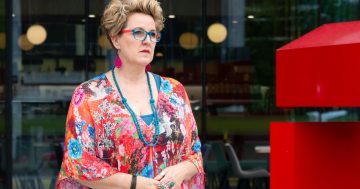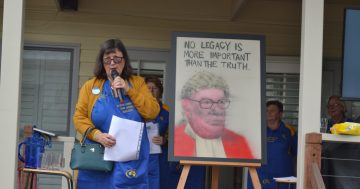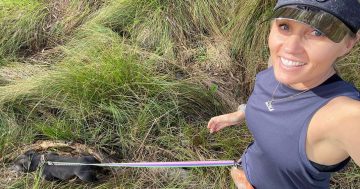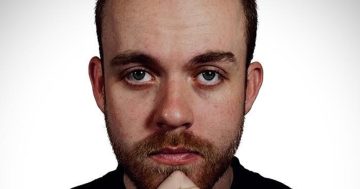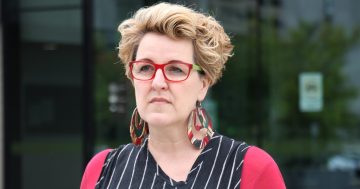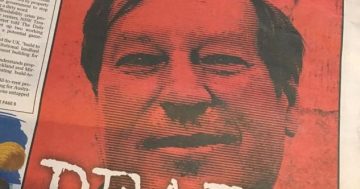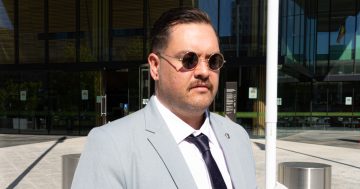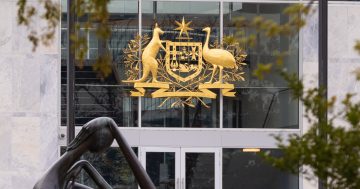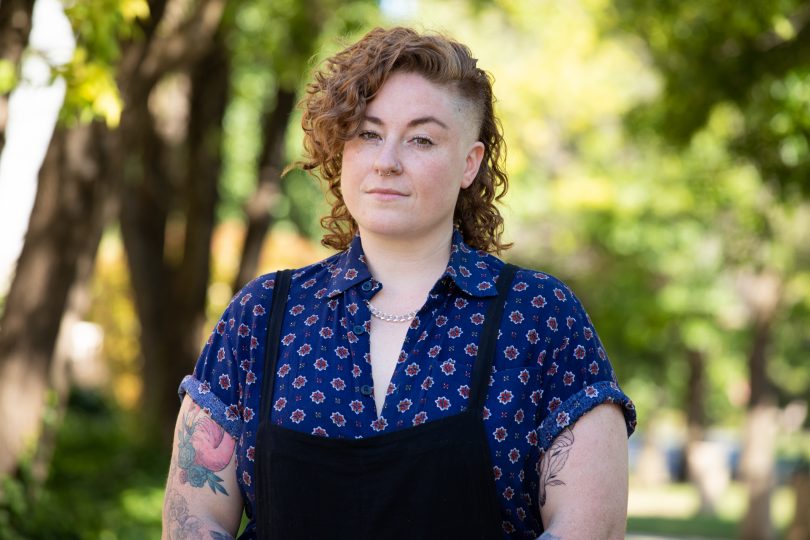
Felicity Andison, 34, has spoken out as a survivor of Cameron Flynn Tully. Photo: Michelle Kroll.
Content warning: this story includes a discussion of childhood sexual abuse.
The survivor, who was just four years old when the notorious paedophile cast his shadow over her life, still sees other victims face a backlash when they come forward with their stories of abuse. It is something that stopped her speaking out decades ago.
Now 34-year-old Felicity Andison believes enough is enough and she wants people to hear her story.
“I’m not going to be quiet, I’m not going to stay silent about this any longer,” she said.
“That power we didn’t have as children, we’re taking it now.”
Ms Andison is one of the women who helped convict Cameron Flynn Tully for child abuse crimes and is the second to speak to Region Media after another woman shared her story in February following the news the 47-year-old had been approved for parole.
While there are a number of people who have helped further the national conversation around childhood abuse in recent years, Ms Andison still sees comments thrown at those like 2021 Australian of the Year and sexual assault survivor Grace Tame accusing them of “bringing it on themselves”.
“It’s just outrageous that people still hold those views in this day and age,” she said.
“More people are coming forward, but they are still facing the same backlash, the same misogyny, patriarchy bulls-t that stopped us coming out back then.
“[They say] you’re a child, you’re seen and not heard, no-one’s going to believe you anyway.”
When asked what she would tell other survivors thinking about coming forward, she said: “You can do it”.
“It’s hard, but it’s ok. We all support you, will love you and will help you through this. It’s not your fault; and it’s not your fault that you haven’t come forward.”
Ms Andison kept her own memories to herself until she was in her mid-teens, when she was having dinner at a restaurant with her mother, who began to speak about another of Tully’s victims.
“I just blurted out, ‘it happened to me too’,” she said.
“I think it broke her, but it was the first time I said it out loud.”

Cameron Flynn Tully, now 47, who was jailed for child sex crimes. Photo: Supplied.
She was in her mid-20s when she saw a news article about how Tully had been charged over another woman and decided to tell police her story too.
When the trial began in 2014, she recalled Tully’s legal team targeted the age she had been at the time of the abuse, questioning how a four-year-old could remember anything like what had happened.
“It was hard to get across to them, sometimes things just stick with you,” she said.
The police believed her straight away, which she said was “really, really helpful”, and she was helped by a “wonderful” senior witness assistant in the trial, Janine Haskins.
But in the years afterwards she said it felt like she was “forgotten”, with no-one following up to see if she needed support. Then she had to fight to get information about the parole process.
“Just keep us involved, let us know what’s happening,” she said.
Ms Andison said she experiences daily triggers that take her back to what happened. Watching her own daughter turn four, the age she was when she suffered the abuse, was one of the biggest ones.
“I thought, how can someone look at a child and do that?” she said.
“I still have nightmares, I still wake up in cold sweats and have to run to the toilet to vomit. I still have to watch my partner not know what to do when I’m distraught, because there’s nothing you can do. I still have to watch my Dad’s heart break every time we talk about it because he feels like he didn’t protect me, even though it’s never been a case of that. Cameron took the opportunity when he could.”
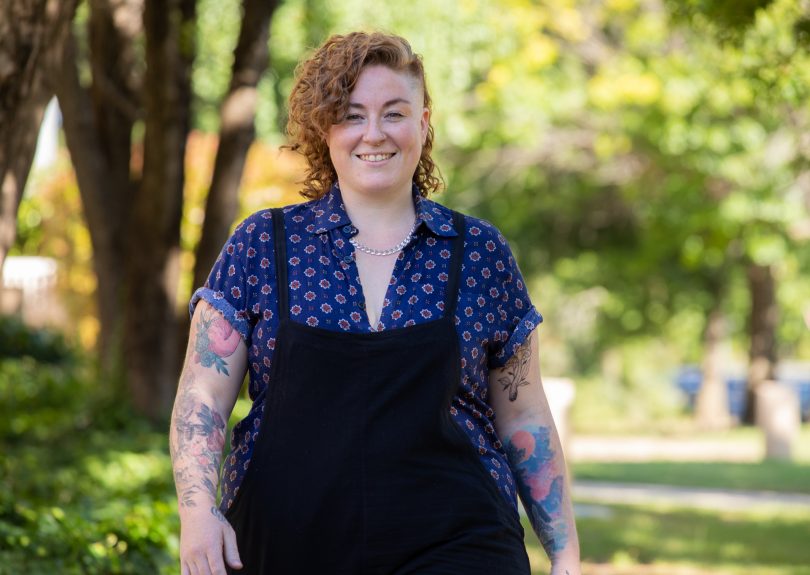
Felicity Andison has encouraged people to talk with their children about personal agency. Photo: Michelle Kroll.
Her advice? Start conversations with your children, “probably younger than you think is appropriate”.
Tell them about personal agency, their bodies and that no-one can touch them if they don’t want them to, nor can they tell them they have to keep a secret.
“I have conversations like this with my daughter. She knows if she doesn’t want to hug someone, she doesn’t have to,” Ms Andison said.
“She doesn’t know about my story, we’ll talk about it when she’s older. But she knows I’ll always protect her and keep her safe.”
Ms Haskins, the former senior witness assistant, said it was people like Ms Andison who “stand up and demand to be heard who make a difference”.
“I used to say to my clients, ‘he had that power over you, but you know what you’ve done? You’ve taken that power away’,” she said.
“That wasn’t just to make them feel better, it was the truth.”
She said there was no shame in speaking up and assistance and support was there.
The Sentence Administration Board said Tully applied for parole in February 2022 and was granted it subject to supervision by ACT Corrective Services with a range of conditions until June 2026.
Ms Andison has granted the Region Media permission to publish her identity.
If this story has raised any concerns for you, 1800RESPECT, the national 24-hour sexual assault, family and domestic violence counselling line, can be contacted on 1800 737 732. Help and support are also available through The Canberra Rape Crisis Centre 02 6247 2525, The Domestic Violence Crisis Service ACT 02 6280 0900, Lifeline 13 11 14, the Suicide Call Back Service 1300 659 467 and Kids Helpline 1800 551 800. In an emergency, call 000.












